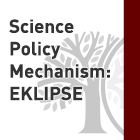Statements and questions on Target 4
EU-target 4: Ensure the sustainability of fisheries
Statement 1: The aim to reach healthy fish stocks, healthy marine ecosystems and sustainable fisheries by reducing waste in fishing through promoting selective gears and reducing discarding practices might not be the better strategy in the light of recent insights related to balanced harvesting
- How can research support better informed decision making processes with regard to fisheries harvesting principles ?
- What research topics should science focus on to resolve complex issues like the effects of selective fishing on ecosystem functioning ?
- Are both options, selective harvesting and balanced harvesting, still achievable under the reign of the discard ban ?
Statement 2: Rights-based catch shares (e.g. ITQ’s: individual transferable quota) can provide incentives for sustainable harvest that is less prone to collapse. It can, however, lead to accumulation of fishery property rights in non-fishery related companies.
- How can fisheries management promote sustainable fishing by the introduction of fishery property rights while avoiding the accumulation of these rights in non-fishery related companies.
- Which regionally and locally applicable monitoring and evaluation methods can science develop that can be applied by all member states and that will lead to a sound evaluation of options to apply fishery property rights at the European level?
- How to avoid that companies that accumulate property rights organise fisheries as a plain industry rather than an economic activity that exploits a natural resource where ecosystem approach is the basis of a healthy exploitation
Statement 3: Bottom trawling and the seafloor disturbance resulting from it enhances fish stock productivity and is essential for productive fish stocks and economically viable fisheries. As such, marine protected areas may reduce the economic viability of the fishing industry.
- How can science assess the influence of sea floor disturbance on the marine ecosystem and fish stock productivity ?
- What are the necessary strategic management choices to actively involve the fishing industry in reaching good environmental status ?
Statement 4: Fisheries, like hunting, is an outdated way of food production and should be replaced by aquaculture in order to reduce damage to marine ecosystems.
- Can science provide an objective and clear comparison of the impacts of fisheries and aquaculture on marine ecosystems ?
- Which research topics should be focused on and what expertise should be brought together to support managing the relative importance of fisheries and aquaculture in Europe ?
Statement 5: The health of exploited fish stocks would benefit from a differentiated catch strategy taking into account age structure (old fish are better spawners), space (brood stock merit special protection) and fitness (diverse stocks will better cope with changing conditions).
- How can research support better informed decision making processes with regard to fisheries harvesting principles, not compromising the evolutionary potential of fish stocks ?
- What research topics should science focus on to resolve complex issues like evolutionary effects of selective fishing on fish stocks ?








 We will soon open a discussion around these statements and questions at our
We will soon open a discussion around these statements and questions at our